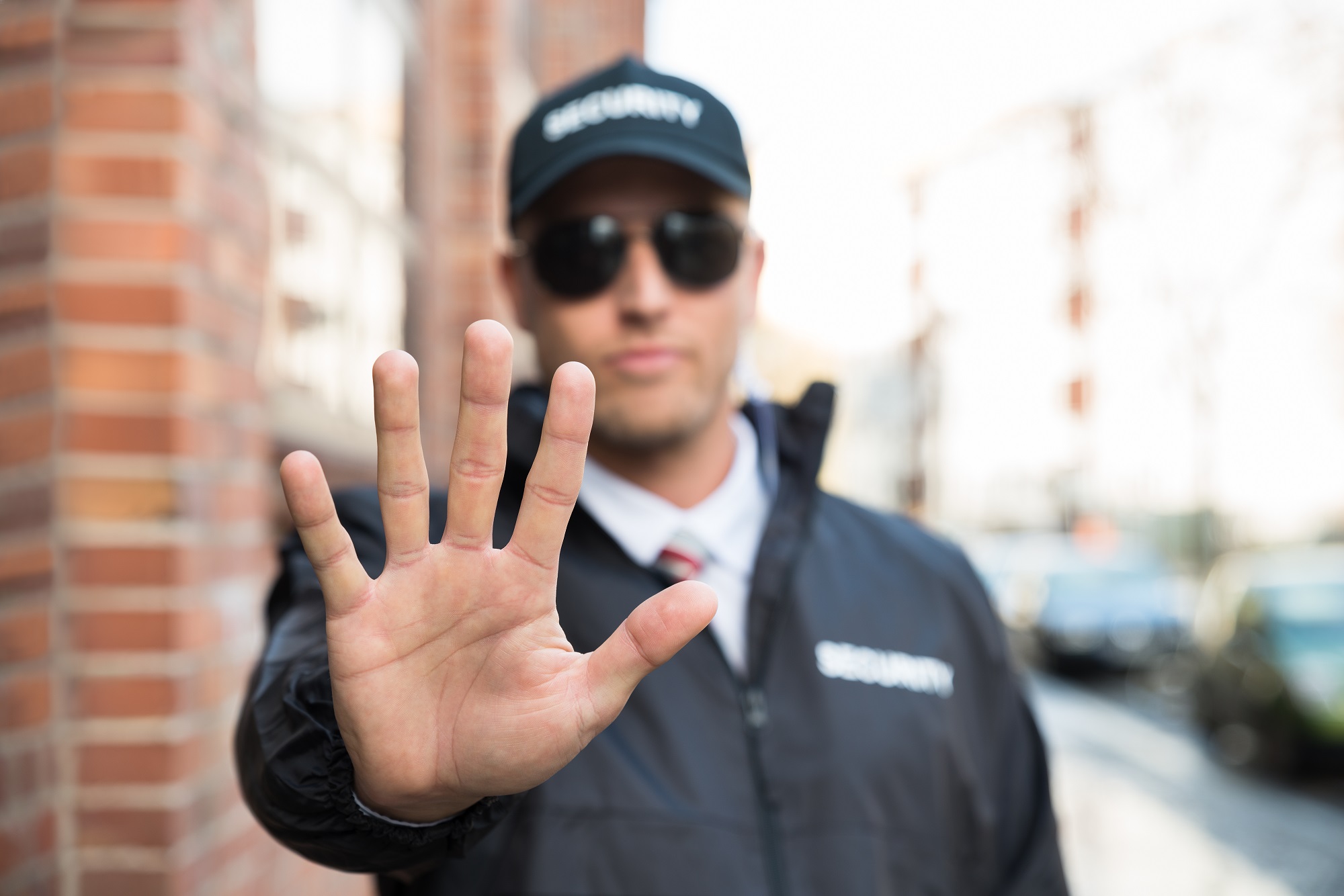A private security guard performs a lot of activities similar to that of a police officer. You might already be aware of that, aren’t you?
Well, often, that’s where the trouble begins. People begin to believe a private security guard has the same rights and obligations as that of a police officer, but that’s not the case at all.
He may be in a uniform but is not a public servant. He operates as a private citizen with legal limitations to arrest, investigate, defend himself and others, and also to carry firearms.
So, the real question is: What is it that they can and can’t do?
1. Power To Make A Citizen Arrest
Did you know that a private security guard has no more legal power than any member of the general public? Despite that, he is permitted to make a felony arrest that has actually been committed in order to ensure the safety of the public.
But, what if it’s not a felony?
Well, in that case, the crime must be committed or attempted in the presence of the private patrol guard. The police should immediately be notified because merely touching an individual can be classified as an arrest.
If the person being arrested has a weapon, the private security guard has the power to take it away. Additionally, they should not forget to write a detailed report in real-time with the help of Guardso’s award-winning guard tour app, which also allows attaching photos & videos seamlessly.

2. Power To Use Reasonable Force
Every private security guard out there is permitted to use reasonable force. And why should they not be allowed while working in situations that might demand it? FBI 2018 crime data shows the estimated rate of violent crime was 368.9 offenses per 100,000 inhabitants, and the estimated rate of property crime was 2,199.5 offenses per 100,000 inhabitants.
However, the ideal condition is to always call the police, have them confront the person and attempt to make an arrest. But, is that always possible? Of course not.
A private security guard may have to take things into his own hands until the police arrive. He needs to, first of all, consider a few factors before using force, such as:
- The severity of the crime
- Risk of harm to everyone
Then try to effectively communicate with the person verbally and record it using the watch mode of Guardso guard tour system as proof. If that doesn’t work out well, he should try to explore other options to bring the situation under control before using force.
Click here to know the 4 de-escalation techniques every guard on a private patrol needs to know!
3. Power To Enforce Rules On-Site
A private security guard is the one responsible for keeping both private property & personnel safe. Whereas, a police officer is entitled to protect the entire community by enforcing laws and arresting the suspected offender.
What you might not know is that some jurisdictions can commission or deputize private security guards by delegating them additional limited powers. That allows them to enforce rules & regulations made by the owner as long as they are not illegal.
For instance, a private security guard patrolling in a shopping mall can enforce rules such as no loitering. If this rule is broken, the guard can ask the person to leave the premises.
- If the person refuses, using watch mode of Guardso guard tour system, the guard can make a video as a proof to attach it to the report, and then go on to use reasonable force to remove him or her from the area.
- If the person still resists and becomes violent in the process, the private security guard needs to immediately call the dispatcher using the Guardso guard tour app for help until the police arrive.

What They Can’t Do?
- They can’t ask a person to go with them unless he or she is arrested.
- They cannot search a person’s property unless a sign stating that it is a condition of entry.
- They can also not stop anyone from being on public land or ban a person as it breaks anti-discrimination laws.
Every private security guard needs to be well aware of their powers and their legal limitations in order to never overstep their authority. Are your guards well aware?

